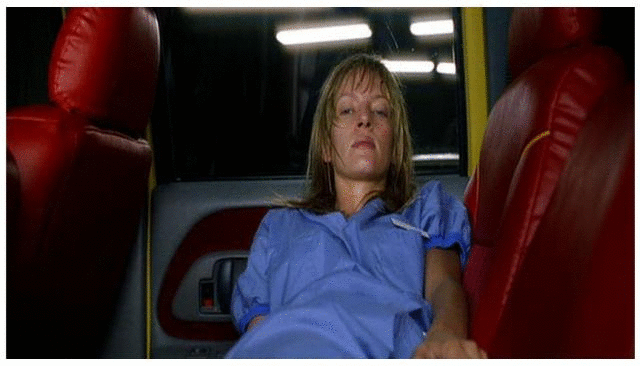Two By Bat
 Tuesday, April 19, 2011 at 4:25PM
Tuesday, April 19, 2011 at 4:25PM  JA from MNPP here, taking a moment to cover one of Nat's most favorite topics - the endless conversation of who's playing who in Christopher Nolan's final (or so he says) Batman film, The Dark Knight Rises. Only instead of indulging the bottomless echo-chamber of speculation, here be actual real for-sure announcements! Via EW:
JA from MNPP here, taking a moment to cover one of Nat's most favorite topics - the endless conversation of who's playing who in Christopher Nolan's final (or so he says) Batman film, The Dark Knight Rises. Only instead of indulging the bottomless echo-chamber of speculation, here be actual real for-sure announcements! Via EW:
"Warner Bros. has announced the official casting of Oscar winner Marion Cotillard and Joseph-Gordon Levitt in Christopher Nolan’s third Batman film, The Dark Knight Rises. Cotillard will play Miranda Tate, described as “a Wayne Industries board member eager to help a still-grieving Bruce Wayne [played by Christian Bale] resume his father’s philanthropic endeavors for Gotham.” Gordon-Levitt will play John Blake, described as “a Gotham City beat cop assigned to special duty under the command of Commissioner Gordon [played by Gary Oldman].”
So there we have it. Cotillard's not playing Talia al Ghul and Joe's not playing The Riddler or any of the other seventeen thousand characters people have been guessing. Just a suit (albeit a sexy French suit, probably with fishnets underneath) and a cop (albeit... well, knowing Joe, probably the same). This is probably for the best since we've already got Catwoman and Bane bopping about. What do we think?
 Batman,
Batman,  Chris Nolan,
Chris Nolan,  Joseph Gordon-Levitt,
Joseph Gordon-Levitt,  Marion Cotillard,
Marion Cotillard,  casting
casting Curio: Saint Werner
 Tuesday, April 19, 2011 at 3:00PM
Tuesday, April 19, 2011 at 3:00PM Alexa here. I heard someone say once that Werner Herzog is as close as the cinema gets to a saint, and I agree. Of course there are the films (Aguirre, the Wrath of God, oy, the magic!), but there's also the exuberant man himself; he feels like a beacon in the middle of a wasteland sometimes. Nathaniel's perfect festival wardrobe choice of a Herzog tee reminded me of this Herzog wearable I want for my birthday:
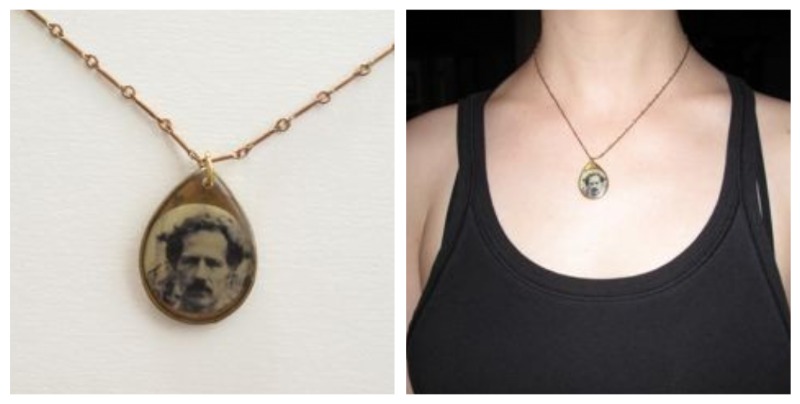
I imagine people would assume I'm wearing my grandfather or something, and I'd love to see the different reactions I'd get when I tell them it's an image of Herzog. (I spied it Seacave's etsy shop; unfortunately he doesn't have any for sale right now, but he does have a sweet Bonnie and Clyde pendant necklace for the lawless out there.)
Recently I spotted this portrait embroidery of Werner, and knowing me, if I had $185 to burn I just might buy it. You can find him at this etsy shop, along with Peter Sellers and Jean-Luc Godard.
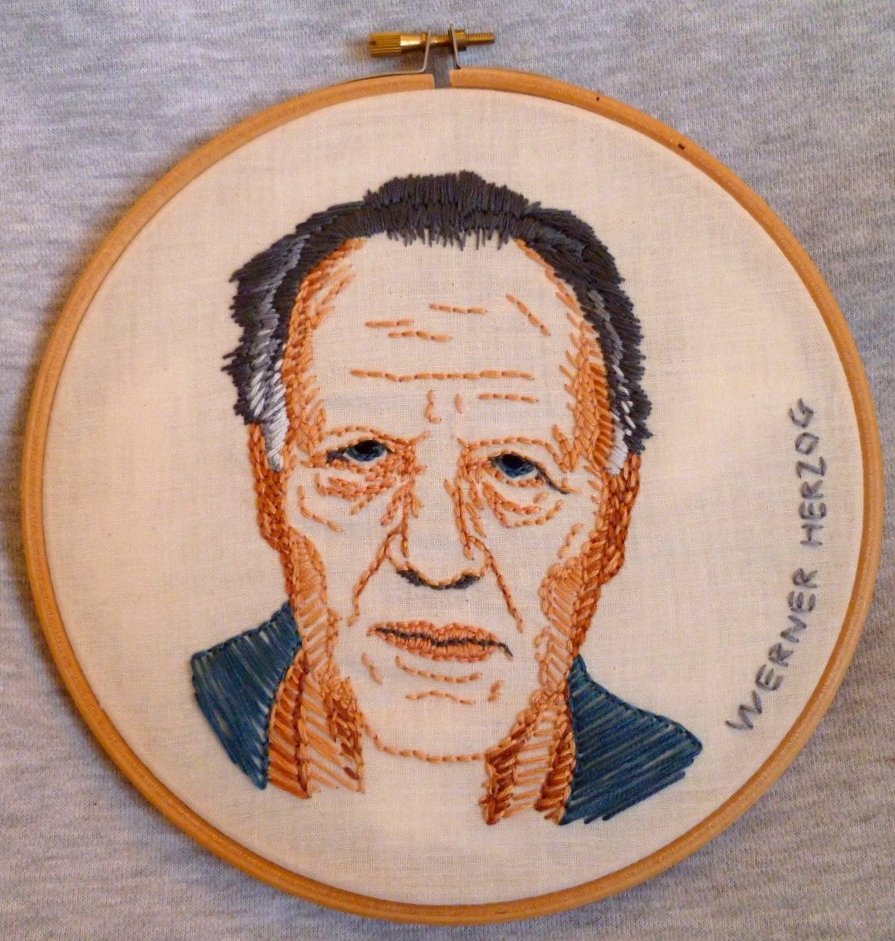
 Curio,
Curio,  Werner Herzog,
Werner Herzog,  jewelry
jewelry First and Last, Birds
 Tuesday, April 19, 2011 at 12:00PM
Tuesday, April 19, 2011 at 12:00PM Andreas here with another First and Last.
The first and last images from a motion picture:

Can you guess the movie?
Read the answer after the jump...
 first and last
first and last New on DVD: Rabbit Hole, Bergman and oh yes, The King's Speech.
 Tuesday, April 19, 2011 at 9:00AM
Tuesday, April 19, 2011 at 9:00AM  Jose here, with a roundup of this week's new DVD releases.
Jose here, with a roundup of this week's new DVD releases.
First up we have the Oscar winning The King's Speech which surprisingly hasn't been out on DVD for decades. Doesn't it feel like one of those movies you're used to passing by on video store aisles, next to things like Around the World in 80 Days, Oliver! and all those other Best Picture winners nobody remembers anymore? Maybe I'm alone on this one, since the film was so popular it ended up making $138 million in the North American box office. Will perennial home video popularity follow?
Much less popular, but inarguably more interesting, was Sofia Coppola's Somewhere which also debuts on DVD tomorrow. The Venice Film Festival winner was supposed to reignite Stephen Dorff's career but went by almost undetected by audiences. Give it a try at home, bask in its visual richness and join Nat next week as he features it in "Hit Me With Your Best Shot".
There is also a rerelease of From Dusk Till Dawn, which includes the documentary Full Tilt Boogie: a chronicle of the behind the scenes of the George Clooney vampire fest.
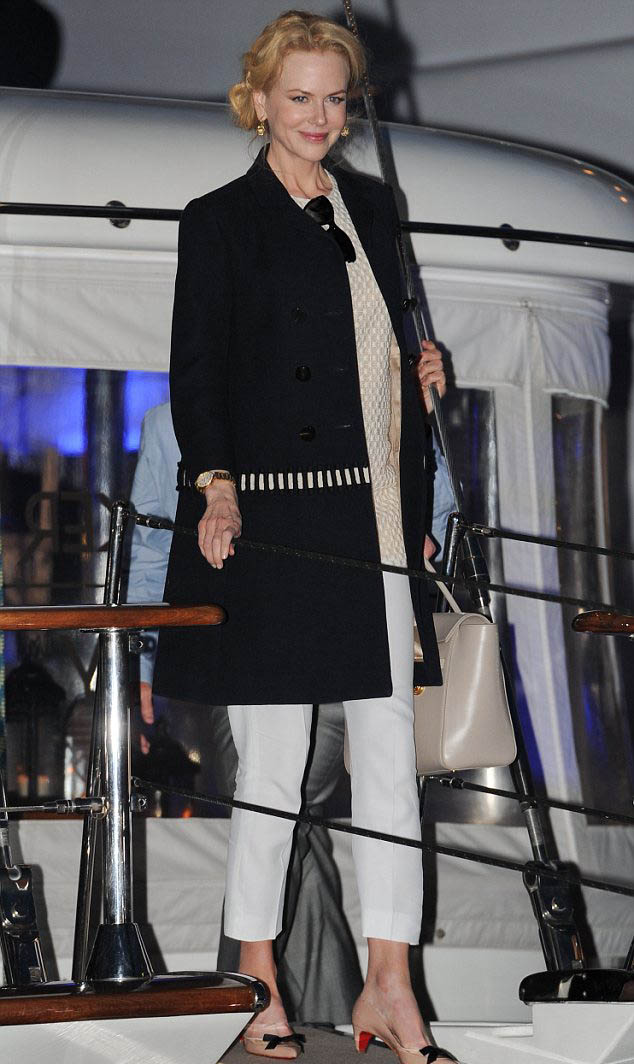 Speaking of things that suck, how crappy was it that Nicole Kidman failed to win any major awards for her moving turn in Rabbit Hole? This tale of grief and sorrow also contained a powerhouse performance by the always underrated Aaron Eckhart and great turns from the reliably good Dianne Wiest and Sandra Oh. The Blu-ray includes deleted scenes and audio commentary with director John Cameron Mitchell. I'd love to hear how he found the calm to direct this after his two outrageously "visual" previous movies.
Speaking of things that suck, how crappy was it that Nicole Kidman failed to win any major awards for her moving turn in Rabbit Hole? This tale of grief and sorrow also contained a powerhouse performance by the always underrated Aaron Eckhart and great turns from the reliably good Dianne Wiest and Sandra Oh. The Blu-ray includes deleted scenes and audio commentary with director John Cameron Mitchell. I'd love to hear how he found the calm to direct this after his two outrageously "visual" previous movies.
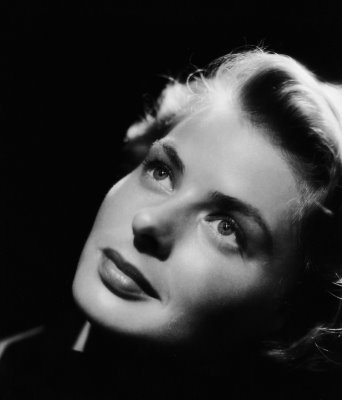 Also out on DVD is Ingrid Bergman in Sweden a boxset that includes some of the legendary actress' most famous Swedish movies. The set includes Intermezzo (which she then remade for her Hollywood debut), A Woman's Face and making its DVD debut is June Night which was Ingrid's last Swedish movie before moving to America.
Also out on DVD is Ingrid Bergman in Sweden a boxset that includes some of the legendary actress' most famous Swedish movies. The set includes Intermezzo (which she then remade for her Hollywood debut), A Woman's Face and making its DVD debut is June Night which was Ingrid's last Swedish movie before moving to America.
Other new releases include Jane Campion's Sweetie making its Blu-ray debut courtesy of The Criterion Collection and Peter Weir's The Way Back.
Excited about any of these releases?
 DVD,
DVD,  Ingrid Bergman,
Ingrid Bergman,  Nicole Kidman,
Nicole Kidman,  Sofia Coppola,
Sofia Coppola,  The King's Speech
The King's Speech 


